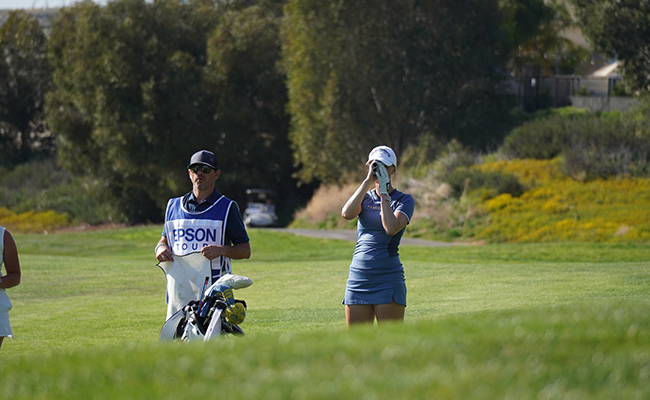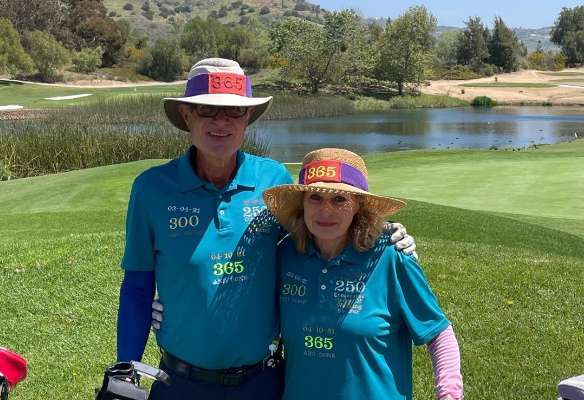Golf is a Game, Not an Agenda: A Rebuttal

A recent opinion piece appearing on CNN.com bandied the headline, “The Problem with Executives Who Golf.” It was written by Kara Alaimo who has a book to be published in 2024 called, “Why Social Media is Toxic for Women and Girls.” Without reading the book, I can safely say I’ll be preaching from it next year to my young daughter. But while I couldn’t agree more with her new project’s title, the same cannot be said about her op-ed regarding golf.
Alaimo uses a study conducted by the Southern Management Association to tell her readers that Chief Executive Officers (CEOs) who play golf are more likely to promote men in their companies and have bigger pay gaps between genders. Both the study and Alaimo introduce a clever phrase I’ve never heard before: “the grass ceiling.” If anyone can appreciate a great pun, it’s a writer.
The case is made, in her article, that most CEOs are men, these men play golf, they invite other men to join them and this cycle leads to business deals and promotions that are exclusionary of women. She also argues that women have far less leisure time to take up golf because they are the primary caregivers in their homes.
You know what? This could all be true. I’m not here to debate that scenario regardless of how literal or hypothetical it might be. And I’m especially not here to defend some notion that women aren’t unequivocally disadvantaged and underrepresented in the corporate workplace. Facts are facts.
No, I’m here to step in front of that all-too-common stray bullet the game of golf always seems to take in pieces like this. You’ve seen them before. The hit pieces that infer that golf is elitist, sexist and even, at times, racist. Golf is a game. It’s not an agenda. People, not golf, can be elitist, sexist and racist. And some of those people, unfortunately, might play golf. But why is this very simple point never made when various soapbox artists infer that the backdrop is just as problematic as some of the bad apples in foreground?
It’s not what Alaimo said in her piece. It’s what she didn’t say. By not pointing out that the game has nothing to do with the people who play it, she’s saying that golf is somehow complicit in the issues at hand. It’s like mixing an acid with a base and faulting the test tube for the eruption. One could reasonably deduce that there are those that feel like if golf didn’t exist, many of these problems might not, either. Take a CEO and his buddies off a golf course, and—presto!—gender inequality at the workplace disappears, too. Afterall, what’s a bad actor without his stage to play on?
This is the guilty-by-association reputation that golf has been saddled with by its non-players and detractors forever. Never mind that it’s criminally untrue. Golf courses have myriad tangible benefits that stretch far and wide. And the great majority of the upside is enjoyed by the 99 percent of us who aren’t in the corner office of a high-rise.
Contrary to misinformed beliefs, golf is mostly played by the middle-class on municipal courses. Those same courses act as greenspaces that sequester carbon and provide habitats for thousands of wildlife species. Kids and war veterans share the same space in harmony. And tens of thousands of Americans pull their paychecks from working in the golf industry. There aren’t enough pages in the phone book to list all the good that golf does for the 26 million people of all ages, races and genders who play it in this country.
Yet you never read about that in pieces like these. Instead, it’s always just the setting for a systematic injustice to play out. It’s the catalyst and to be attributed blame for fostering such bad practices. And no one could fault an uninformed reader for feeling ill-will towards the game.
The correlation between inequal workplaces and CEOs who play golf unfairly incriminates golf and hides behind a statistic in a study that was too easy to cherry-pick.
The average age of a CEO is 59. Most 59-year-olds aren’t getting up and down the court at the YMCA or playing tackle football. Golf is, of course, going to be the game those of a certain age gravitate towards because it’s so forgiving on the body. Maybe the CEO isn’t playing golf because golf courses are where bad things happen. Maybe the CEO is playing golf because he’s 59. Is that golf’s fault?
I want to be clear that everything said about the imbalance of men with higher paying jobs who continually promote other men is true. These aren’t opinions. They are researched-based facts. And things need to change.
But to assign golf a role in why this is happening is easy and cheap. It discounts all the good that the game has done and continues to do for so many people, women included, who, by the way, make up close to 35 percent (and growing!) of all the golfers in this country. And it leaves potential future allies with vitriol for something that benefits even the non-golfer.
Alaimo’s piece was titled, “The Problems with Executives Who Golf.”
It was, in my opinion, two words too long.











